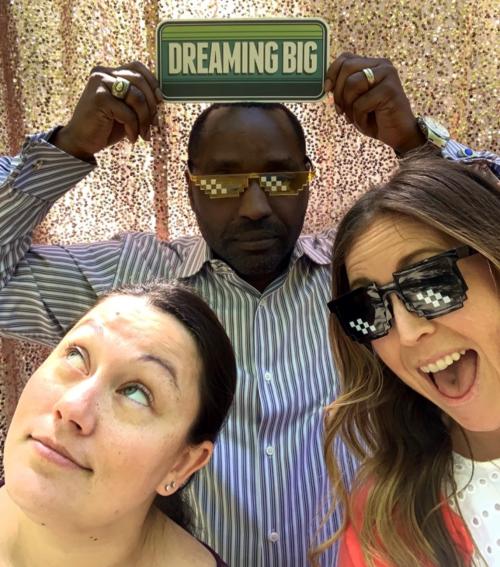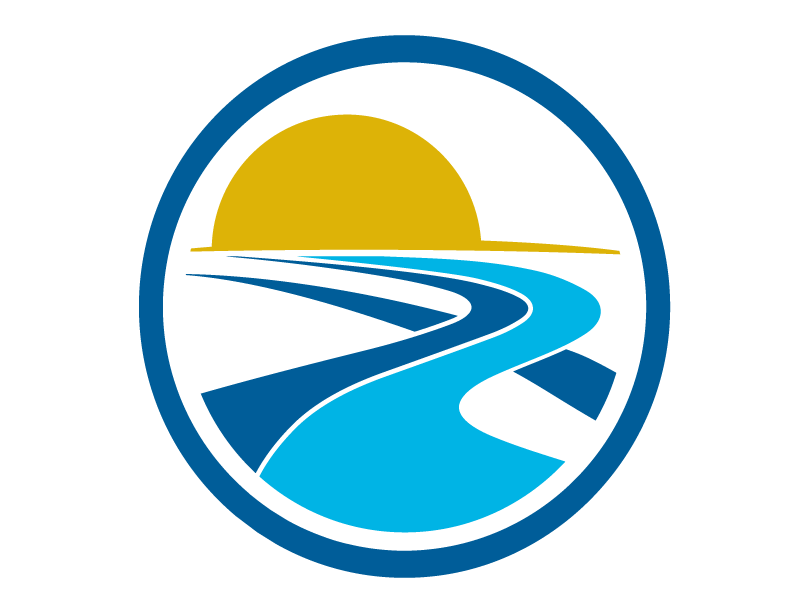Academic Advising Enrichment (AAE) hosted its eighth annual UC Davis Academic Advising Conference April 25-27, 2022. The three-day event began with an in-person lunch event on day one, while program content was delivered virtually on days two and three. As a departure from previous conference themes centering the student, the 2022 conference focused on the advisor experience. This decision came about in recognition of advisor burnout/fatigue and the need to address capacity, wellness, and support.

After two years without any in-person community gatherings as a result of the Covid-19 pandemic, the AAE team was thrilled to enjoy lunch with over 100 advising colleagues from across campus on April 25 at the Walter A. Buehler Alumni Center Moss Patio. AAE Executive Director Kayton Carter and Undergraduate Education Interim Vice Provost and Dean Cynthia Carter Ching shared remarks about the beauty of the day and the ability to simply be together. Punctuated by an interactive photo booth, the lunch was truly joyful.
Carter opened day two of the conference with a number of acknowledgements to mark the importance of community. He addressed the context within which the advising community has experienced challenges, such as the global pandemic, events affecting higher ed (admissions scandal, standardized test shifts), cost of living increases, and students experiencing higher levels of stress/uncertainty. The job of advising in this environment is more challenging than ever; now is the time to contemplate the current advising experience and envision a new, healthy, and sustainable future.
Guest speaker, Loyola Marymount University Assistant Vice Provost of Educational Effectiveness and Assessment Rebecca Hong delivered the keynote address with a powerful message about burnout in a helping profession and how to use those experiences to conceive a new future. Her presentation included an instructive Pause-Assess-Design approach to determine how to move forward as a community, and how to do so in a human-centered way.
Following Hong’s presentation, Academic and Staff Assistance Program (ASAP) Director Rob Starkey addressed advisor wellness. He shared information about ASAP services and resources, and encouraged advisors to utilize the program. During the presentation, several advisors shared in the chat that they have personally used ASAP counseling services and found them extremely helpful. Starkey talked about the importance of setting boundaries, communicating about expectations with supervisors, and engaging in everyday wellness practices.
To conclude the second day of the conference, Provost and Vice Chancellor Mary Croughan spoke about the conditions within which advisors currently operate as unsustainable. She pointed out that turnover, understaffed offices, increased workloads, and more complex student circumstances are some of the contributors to this lack of sustainability. She shared her profound thanks with the conference participants – those who have stayed through this very difficult time – to acknowledge their dedication, and she committed to a future with heightened investment in advising. From elevating advising as a profession to funding additional advisor positions, the Provost expressed her intent to better equip the advising community as a whole. Croughan stated that she intends to work with advising leadership to devise next steps related to that commitment.
The third and final day of the conference focused on collaborative engagement, with two extended breakout sessions. Participants split into small groups to discuss and provide feedback on prompts reflective of the content from the presentations delivered on day two. They shared feedback via Jamboards that AAE will compile as part of the “pause” phase that Rebecca Hong encouraged in her presentation the day prior. These comments and contributions from the advising community will help inform the path forward.
Kayton Carter and Cynthia Carter Ching provided final remarks to end the conference. Ching asserted that self-care and self-preservation are essential to our wellbeing; furthermore, she emphasized that advisors deserve meaningful work and tangible care/value from the institution. Carter shared a video that resonated with Ching’s message about why we all need to secure our own masks first – as a mechanism to maintain the energy and capacity to help others and avoid burnout.
We are not going “back to normal,” instead we will use our experiences to shape our future for the better.
